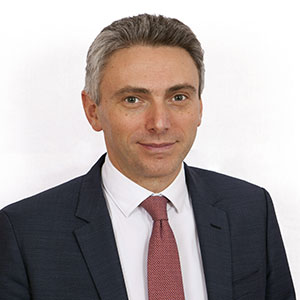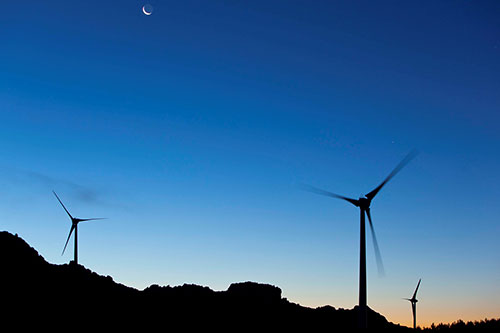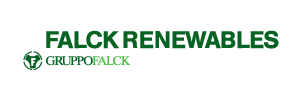Members' interviews
interview with Toni Volpe, CEO of Falck Renewables

24 October 2017

Can you tell our readers a little about your organisation?
At Falck Renewables S.p.A. we focus exclusively on green technology, making us one of the biggest “pure players” in the European renewable energy sector. We develop, design, build and manage renewable energy sites generating from wind, solar, biomass and waste energies.
In 2017, our installed capacity in Europe totalled 858 MW, and the energy we produce in Italy, the United Kingdom, Spain and France is equivalent to over 2 billion kWh per year.
Using know-how and best practice acquired across European markets and overseas, our expertise covers the entire life cycle of a project, from pre-feasibility studies in early development right through to operation, maintenance and management activities.
Through our wholly owned company Vector Cuatro, based in Madrid, Falck Renewables also performs technical and commercial asset management for third party owners for renewable power projects totalling 1.7 GW of installed capacity.
Last year we launched our 2021 Roadmap. This sets out a continued growth strategy based on diversification of production in terms of both technology and geographical area, making us one of the most flexible and resilient developers in Europe.
What are the most exciting developments you have seen in the wind industry?
The amazing drop in the cost of wind technology, and the fact new onshore wind is cheaper than any new fossil fuel technology, can’t be celebrated enough. That onshore wind is comfortably the lowest cost option for utility scale facilities is brilliant news for consumers and the environment.
Coupled with advances in storage and demand-side response technologies, the future’s bright for the sector as we move towards a truly flexible and balanced clean energy system. We’re in a brilliant place to help countries across Europe realise the benefits of this transition.

What changes would you like to see in the wind industry?
When considering the future of wind technology, it’s essential not to think about the technology in isolation. New storage technologies and capacity are important, but a ‘whole system’ approach is necessary to realise the benefits of an efficient smart system that combines smart grids, storage, electric mobility and efficiency. It will be a truly revolutionary system that will bring economic rewards by way of productivity gains as well as societal benefits by way of improved air quality. To achieve this, the industry needs an effective and stable policy and regulatory environment that encourages investment and innovation.
Seeing such advancements will require greater focus from Governments and regulators on the overall market structures of the wholesale energy market. For growth in the clean energy sector more generally, it’s particularly important to differentiate between renewable and conventional energy markets. We support the direction of the European Commission’s Clean Growth Plan, but to really turbo-charge growth, there needs to be long-term price signals for both renewable and non-renewables, where commitment to the former is clear. Of added importance will be a more ambitious and binding 2030 European renewables target. Something in the realm of at least 35% would give the sector a material and long-term signal of confidence.
Going forward, what role do you see your organisation playing in the future development of wind energy?
One of our key competitive advantages is that we’ve found really effective ways to share the benefits of our work with the local communities who host our windfarms. We pioneered our local ownership scheme in the UK and are looking forward to exporting this business model to other European countries – a move that we think makes us unique in the market.

How has WindEurope membership benefited your organisation?
Given the importance that we place on growing Falck’s position in Europe, it’s vital that we are members of important, well-established and reliable industry organisations like WindEurope. Membership is an essential part of making our voice heard at a European level and we look forward to working with our fellow members.
Alongside this, we’re excited about participating in the many networking and industry events WindEurope excel in organising – Falck is an outward facing company, keen to export best practice across the countries we operate in. With such an exciting time ahead in the sector we look forward to exchanging our experiences with others and hearing the latest news about technology and innovation.
If we look ten years ahead, what do you hope to have achieved?
We definitely want to capitalise on the strength of our activity in the onshore wind markets of Italy and the UK, so we are planning an expansion of developing activities in the Nordics, France, Ireland and the Netherlands.
With Europe projected to install 163 GW of wind power between 2014 and 20301, we want to make sure we’re at the forefront of delivery. The historical dominance of large utilities is shifting towards smaller generators and Falck, as an independent, “pure player” generator, is in a great place to make the most of this transition.
Looking ahead, we’ll remain a wind-oriented company with a focused portfolio: by 2021, 87% of our assets will be wind
1Source: World Energy Outlook 2016 – New Policies Scenario – International Energy Agency


